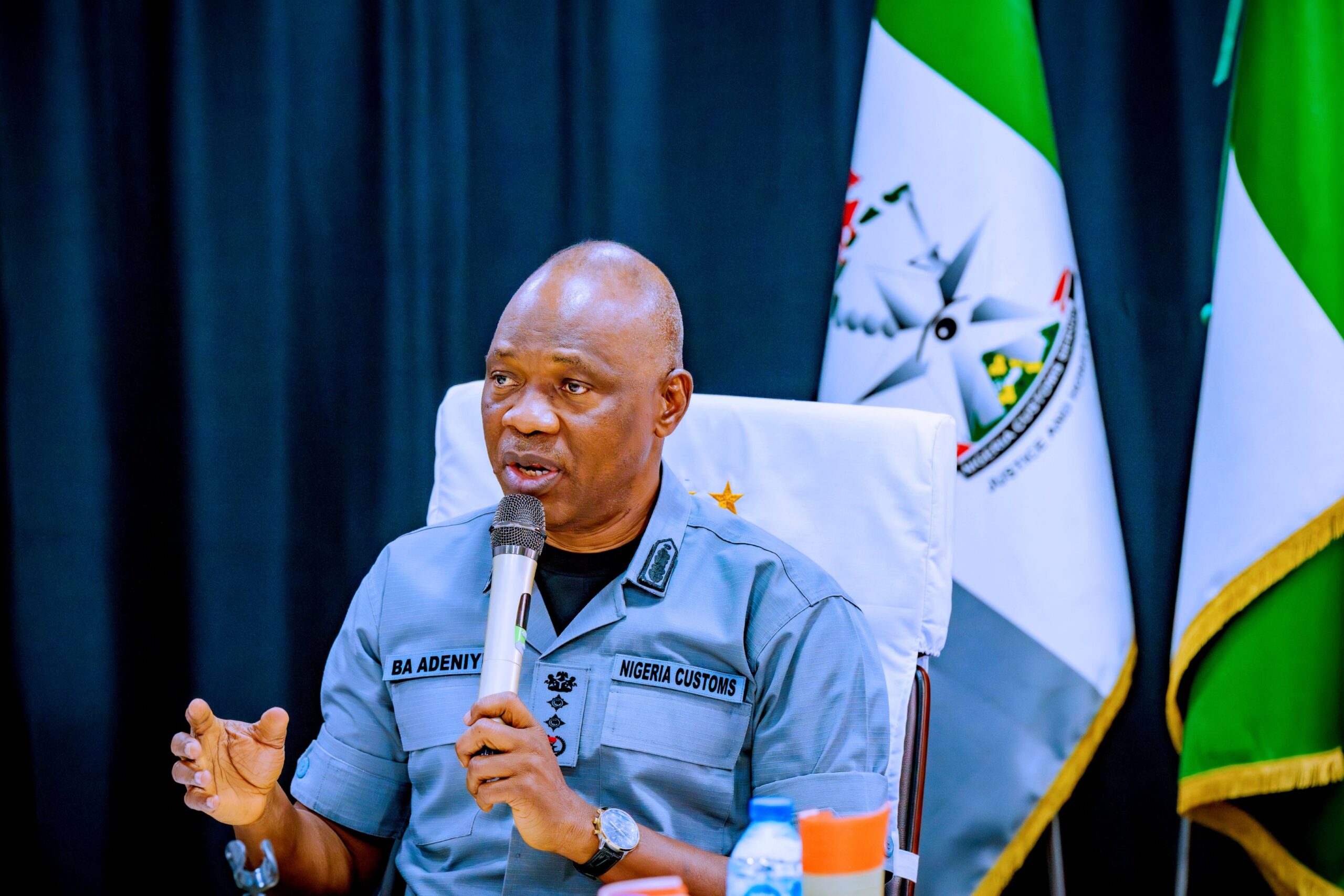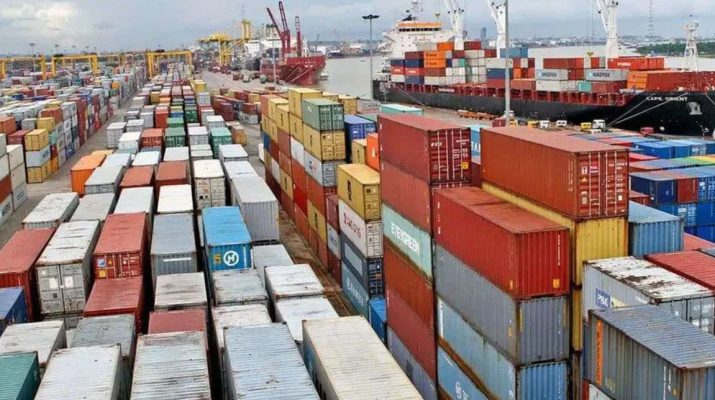In its continued bid to attain seamless service delivery, the Nigeria Customs Service (NCS) clarifies earlier system hitches affecting PAAR certificate transmission on the B’Odogwu platform and other issues
By Edu Abade
The Nigeria Customs Service has assured all stakeholders and partners that concerns raised on the delays caused by glitches experienced in the transmission of Product Certificates for Form M and SONCAP required for PAAR processing on the B’Odogwu platform were being addressed to pave the way for seamless operations.
In a statement made available to newsmen on behalf of the management, National Public Relations Officer, Abdullahi Maiwada, an Assistant Comptroller of Customs said the attention of the Nigeria Customs Service (NCS) has been drawn to concerns raised by importers and licensed customs agents regarding recent delays being experienced.
He said the NCS acknowledges that the disruption followed technical integration challenges that emerged during the process of onboarding the Standard Organisation of Nigeria (SON) on the B’Odogwu platform on July 23, 2025. These system-related issues temporarily impacted traders’ ability to accurately capture their Form M, PAAR and Single Goods Declaration (SGD).
Maiwada pointed out that specific challenges encountered included limited space for trader names, incorrect data formatting, missing 10-digit product codes, ambiguous error prompts, and difficulties linking the Tax Identification Number (TIN) to traders’ profiles.
He added that while NCS was able to promptly resolve the issues within its system, further coordination was required to complete the resolution on SON’s side.
“The Nigeria Customs Service is pleased to confirm that as of Wednesday, August 6, 2025, both agencies have successfully resolved the transmission issues. Product Certificates and SONCAP documents are now being transmitted seamlessly and the backlog of affected transactions is being cleared.
“In a bid to continuously support stakeholders, the NCS has rolled out nationwide implementation of the B’Odogwu platform across Zones A, B, C, and D, with trained officers on the ground to provide hands-on technical assistance to traders and licensed agents.
“The NCS remains committed to transparency, collaboration, and stakeholder engagement. Regular training sessions for stakeholders are ongoing across various commands. These sessions not only build user capacity but also serve as a channel for surfacing and resolving operational challenges on the platform,” the statement reads.

In a related development, Zone A Coordinator, Assistant Comptroller-General of Customs (ACG) Charles Orbih, who explained that the Authorized Economic Operator (AEO) Programme is a move towards a new direction for trade facilitation in Nigeria, said the theme of the event: From Fast Track to AEO: Enhancing Trade Facilitation and Supply Chain Security in Nigeria is both timely and strategic.
Speaking at the Stakeholders Engagement Forum in Lagos, he said, “It captures the direction of our reforms at the Nigeria Customs Service, which aim to support legitimate trade, enhance economic competitiveness and strengthen national security through smarter, more collaborative approaches.
“For over a decade, the Fast Track Scheme provided early benefits for compliant importers. However, it had limitations-mainly the absence of a legal framework for the changing dynamics of the supply chain.
“It became clear that we needed to migrate to a model that is structured, risk-based, transparent and globally recognized. That is what led to the design and implementation of the AEO programme.”
On the import of a better understanding of the AEO programme, he explained that it is not just a new policy, but a paradigm shift in the way Customs interacts with the private sector. Developed in line with the World Customs Organisation (WCO) SAFE Framework of Standards, particularly its second pillar-Customs-to-Business partnerships-the AEO Programme promotes a modern system of risk management, facilitation and compliance.
The programme was first piloted on April 15, 2024 and following thorough testing, capacity building and stakeholder consultations, the national launch was held on February 14, 2025.
Its objective is to identify and reward businesses that demonstrate consistent compliance with Customs and tax regulations by granting them faster, more predictable and efficient processes.
Orbih disclosed that the benefits and impacts of the AEO programme include faster cargo clearance and release, reduced physical inspections, dedicated service desks at ports and terminals, priority treatment during disruptions or port congestion, improved dispute resolution channels and greater supply chain visibility and global recognition.
“These benefits are not just theoretical as the results are already measurable. A recent Time Released Study (TRS) conducted by the Service shows that the average clearance time for AEO traders is now 43 hours. This is a significant reduction compared to non-AEO traders, which means lesser cost, faster delivery and better control over the supply chains.
“This reform not only supports trade facilitation, but also helps Nigeria to meet its obligations under the WTO Trade Facilitation Agreement, making our trade ecosystem more competitive and business friendly,” he stated.
On the role of Post Clearance Audit (PCA) in supporting the AEO Programme, he explained that on July 28, 2025, the Nigeria Customs Service officially launched the PCA Pilot Reform aimed at strengthening audit-based controls without disrupting legitimate trade. Through the PCA, officers will now verify transactions after clearance-checking financial and non-financial records at the trader’s premises or offices in line with sections 36(4) and 37(2) of the NCS Act 2023.
He also revealed that the PCA enables the Service to maintain revenue assurance while supporting upfront trade facilitation for trusted traders. It reinforces the AEO framework by ensuring that those who benefit from simplification continue to meet their compliance obligations.
While disclosing that the PCA Unit has been fully restructured with the appointment of an Assistant Comptroller-General and dedicated teams at the Headquarters and Zonal levels to drive its implementation, he stressed that on stakeholders’ role, it remains a partnership and not a privilege.
“The AEO is not a favour or shortcut- it is a mutual commitment and to qualify, businesses must meet their strict eligibility criteria, maintain accurate records, follow Customs laws, pay the right duties and cooperate during validations and audits.
“Our role as Customs is to ensure fairness, support capacity building and uphold transparency in all processes. We are also developing an AEO digital platform, enhancing inter-agency collaboration and preparing for Mutual Recognition Agreements (MRAs) with key trading partners.
“We, therefore, urge all qualified operators-importers, exporters, manufacturers, logistics providers-to get validated and enjoy the full benefits of AEO status.”
Also in his intervention, Assistant Comptroller-General in charge of the Post Clearance Audit (PCA) Unit of the NCS, ACG ZA Chiroma, who was represented by Assistant Comptroller General, Tariff and Trade, Kingsley Egwu, said the forum remains a pivotal milestone in our collective journey toward a modern, efficient, and risk-managed administration.
“It reflects the Service’s commitment to align with global standards-particularly those prescribed by the WCO’s SAFE Framework of Standards and anchored on Sections 108 to 111 of the NCS Act 2023.
“While the Fast Track Scheme played a foundational role in facilitating legitimate trade, it had operational and structural limitations. The AEO Programme now provides a more robust, internationally recognized mechanism that rewards compliant economic operators and strengthens supply chain security through structured validation and risk segmentation.
“The migration is taking place within the broader framework of NCS reform-one that is anchored on transparency, efficiency and evidence-based compliance management. Central to this reform is the transformation of the PCA regime,” he said.
He explained that in recognition of the critical role PCA plays in Customs modernization, the PCA Unit was moved from the Tariff and Trade Department to the Office of the Comptroller-General of Customs with effect from 19 December 2024.
“This strategic realignment underscores the high-level priority now accorded to PCA as a core compliance and revenue assurance function. In furtherance of this vision, the Comptroller-General of Customs approved the appointment of a dedicated Assistant Comptroller-General to head the PCA Unit, alongside the appointment of two senior officers including the Comptroller PCA Headquarters (Administration), Comptroller PCA Headquarters (Operations)
“These appointments are designed to ensure strong institutional leadership, clearer accountability structures, and improved execution of PCA’s mandate nationwide.
“Since this structural elevation, the PCA Unit has embarked on significant reforms notably establishing a risk-based approach to audits and framework on Comprehensive audits-onsite (field) audits as empowered in Section 36 (4) of the NCS Act 2023,” he added.
Chiroma also explained that the reforms not only enhance post-clearance control, but also complement the AEO Programme’s objectives of promoting trade facilitation, voluntary compliance and reducing physical interventions. Adding that the Fast Track Scheme will be formally decommissioned on December 31, 2025, he pointed out that all existing beneficiaries are required to submit fresh AEO applications through its official portal: aeo.nigeriatradehub.gov.ng.
“The Service has established clear operational guidelines, a competent AEO Unit, and a trained team of validators to ensure a smooth and credible transition process.
“This forum is not just about information dissemination-it is about stakeholder inclusion. We pledge to listen, respond and co-create a more efficient and predictable trade environment for all.
“As we move forward, we assure you that under the leadership of CGC Bashir Adewale Adeniyi, the Nigeria Customs Service remains firmly committed to reform, collaboration and modernization,” he concluded.



